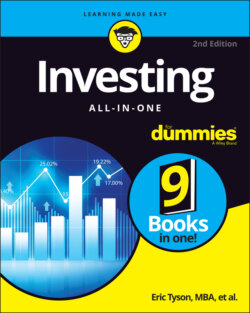Читать книгу Investing All-in-One For Dummies - Eric Tyson - Страница 47
Deciding whether to issue stocks or bonds
ОглавлениеA world of difference exists between the two major types of securities, both from the perspective of the investor and from that of the issuing company:
Bonds are loans that a company must pay back. Instead of borrowing money from a bank, many companies elect to sell bonds, which are IOUs to investors. The primary disadvantage of issuing bonds compared with issuing stock, from a company’s perspective, is that the company must repay this money with interest. On the other hand, the business founders/owners don’t reduce or relinquish ownership when they borrow money. Companies are also more likely to issue bonds when interest rates are relatively low and/or if the stock market is depressed, meaning that companies can’t fetch as much for their stock.
Stocks are shares of ownership in a company. Some companies choose to issue stock to raise money. Unlike bonds, the money that the company raises through a stock offering isn’t paid back because it’s not a loan. When the investing public buys stock, these outside investors continue to hold and trade it. (Although companies occasionally buy their own stock back, usually because they think it’s a good investment, they’re under no obligation to do so.)Issuing stock allows a company’s founders and owners to sell some of their relatively illiquid private stock and reap the rewards of their successful company. Many growing companies also favor stock offerings because they don’t want the cash drain that comes from paying loans (bonds) back.Although many company owners like to take their companies public (issuing stock) to cash in on their stake of the company, not all owners want to go public, and not all who do go public are happy that they did. One of the numerous drawbacks of establishing your company as public is the burdensome financial reporting requirements, such as publishing quarterly earnings statements and annual reports. Not only do these documents take lots of time and money to produce, but they can also reveal competitive secrets. Some companies also harm their long-term planning ability because of the pressure and focus on short-term corporate performance that comes with being a public company.
Ultimately, companies seek to raise capital in the lowest-cost way they can, so they elect to sell stocks or bonds based on what the finance folks and investment bankers tell them is the best option. For example, if the stock market is booming and new stock can sell at a premium price, companies opt to sell more stock. Also, some companies prefer to avoid debt because they don’t like carrying it.
From your perspective as a potential investor, you can usually make more money in stocks than bonds, but stocks are generally more volatile in the short term (see Chapter 2 in Book 1).
